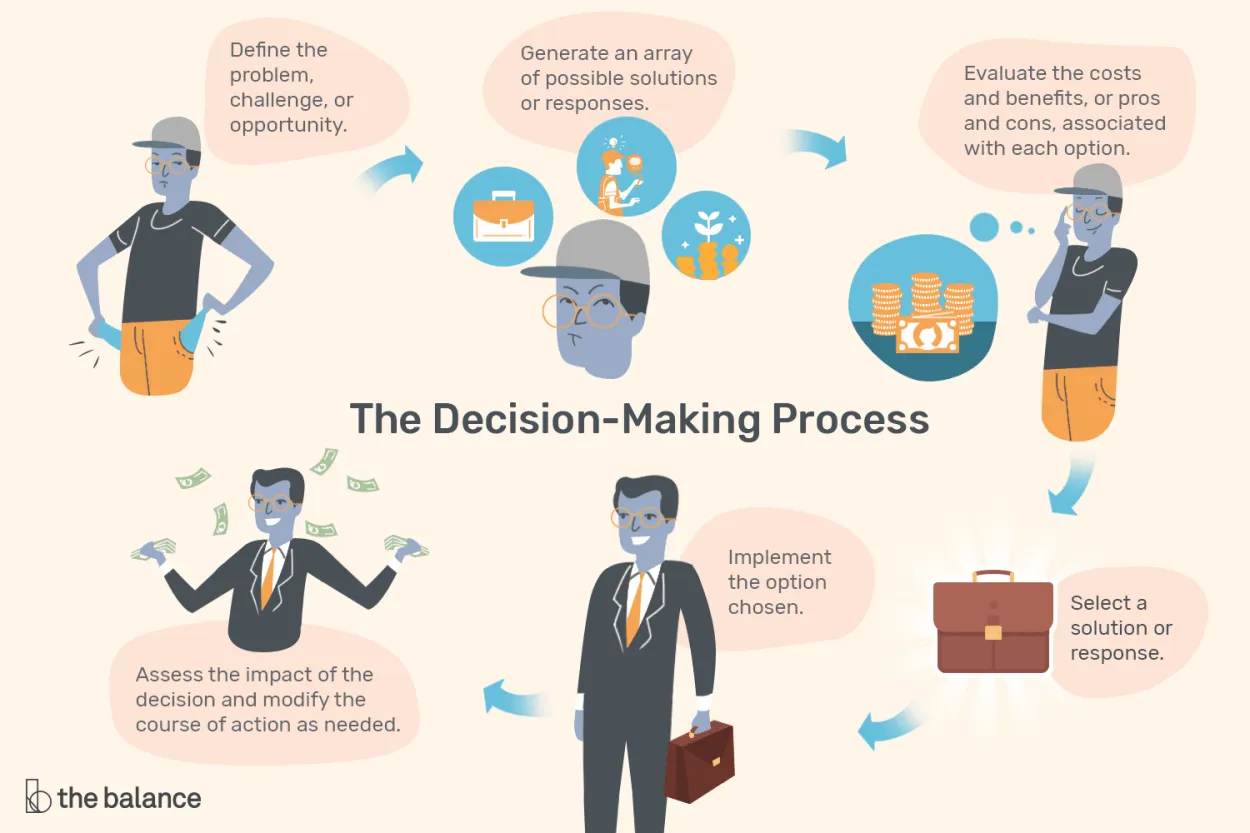Mastering Decision-Making in Business is crucial for success in today’s dynamic and competitive market. In this article, we will explore effective strategies and techniques to make informed decisions that drive growth and maximize profitability. Whether you are a seasoned entrepreneur or just starting out, enhancing your decision-making skills is essential for navigating the challenges and opportunities that lie ahead.
Utilizing Data Analysis for Informed Decisions
In the modern business landscape, decision-making plays a pivotal role in determining the success or failure of an organization. Fortunately, businesses now have access to a wealth of data that can be harnessed to make more informed decisions. Data analysis has emerged as a powerful tool to extract valuable insights from this vast amount of information. By utilizing data analysis techniques, businesses can gain a competitive edge and optimize their decision-making processes.
Data analysis involves the examination, cleaning, and transformation of data in order to discover meaningful patterns and draw conclusions. It empowers organizations to make evidence-based decisions, rather than relying on intuition or guesswork. By analyzing historical data, businesses can identify trends, correlations, and potential causal relationships that can help shape their decision-making strategies.
One popular data analysis technique is predictive modeling, which uses statistical algorithms to make predictions about future outcomes based on historical data. By leveraging this technique, businesses can anticipate market trends, customer behavior, and even potential risks. This can lead to improved forecasting, more effective resource allocation, and ultimately, better decision-making.
Furthermore, data analysis can contribute to the identification of areas for improvement within a business. By examining various performance metrics, such as sales figures, customer satisfaction ratings, or production costs, organizations can uncover potential bottlenecks or inefficiencies. This enables them to make data-driven decisions to optimize these processes and enhance overall performance.
It is important to note that effective data analysis requires both skilled professionals and the right technology infrastructure. Organizations must invest in tools that facilitate data collection, storage, and analysis. Moreover, having a team of data analysts or data scientists who possess strong analytical skills and domain knowledge is crucial for successful implementation. By combining the right people with the right technology, businesses can leverage data analysis to its full potential and thrive in an increasingly competitive environment.
Evaluating Risk and Reward Factors
In the world of business, decision-making plays a crucial role in determining the success or failure of an organization. When making decisions, it is essential to consider the various risk and reward factors involved. Evaluating these factors allows businesses to make informed choices that can maximize their chances of achieving favorable outcomes.
One important factor to evaluate is the level of risk associated with a particular decision. This involves assessing the potential negative consequences or losses that may arise from taking a certain course of action. It is crucial to weigh these risks against the potential rewards to determine whether the decision is worth pursuing.
Additionally, understanding the potential rewards that can be gained from a decision is equally important. This involves assessing the potential positive outcomes or benefits that can result from taking a particular course of action. By evaluating the potential rewards, businesses can determine whether the expected returns outweigh the associated risks.
Evaluating risk and reward factors requires careful analysis and consideration of various aspects. This includes assessing the current market conditions, conducting thorough research, and considering any external factors that may impact the decision-making process. It is crucial to gather relevant information and data to make informed evaluations and predictions.
Ultimately, mastering decision-making in business requires the ability to evaluate risk and reward factors accurately. By understanding the potential risks and rewards associated with a decision, businesses can make informed choices that align with their goals and objectives. It is crucial to strike a balance between taking calculated risks and maximizing potential rewards to drive business success.
Improving Intuition through Experience
In the fast-paced world of business, making effective decisions is crucial for success. Mastering decision-making requires a combination of analytical thinking, strategic planning, and intuition. While logic and data analysis are essential, intuition plays a significant role in making quick and accurate decisions.
Experience is a key factor in improving intuition. The more experience you gain in your industry, the more patterns and trends you will recognize. By encountering various situations and understanding their outcomes, you will develop a strong foundation of knowledge and intuition.
Networking and seeking advice from seasoned professionals can also sharpen your intuition. Engaging in conversations and learning from others’ experiences can provide different perspectives and broaden your decision-making skills.
Sometimes, taking risks and learning from your failures can enhance your intuitive abilities. Embracing new challenges and stepping out of your comfort zone allows you to build confidence in your decision-making and further develop your intuition.
Continuous learning is essential for improving intuition. Staying up-to-date with industry trends and advancements will strengthen your decision-making abilities and enable you to make more informed choices based on your intuition.
In conclusion, improving intuition through experience is crucial for mastering decision-making in business. Through gaining experience, seeking advice, taking risks, and continuous learning, you can enhance your intuitive abilities and make better decisions that lead to business success.
Conclusion
In conclusion, mastering decision-making in business is crucial for success. By analyzing data, considering all the available options, and taking into account potential risks and rewards, businesses can make informed decisions that lead to growth and profitability. Additionally, adopting a mindset of continuous learning and adaptation can help businesses navigate through uncertainty and seize opportunities. Ultimately, effective decision-making is a skill that can be honed through practice and experience.




